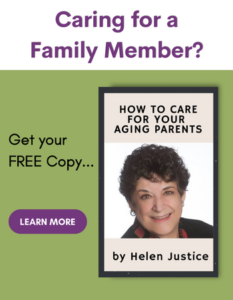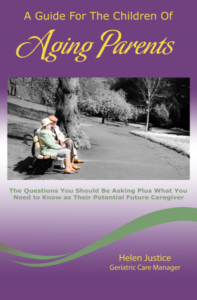Safety and Fall Prevention Checklist
These 3 Simply Steps can Prevent Falls and Accidents
When your parents, yourself or a loved one begin to age, certain faculties cause a rise in the increase of falling. Research is clear that 1 in 3 Americans over the age of 65 will suffer a fall and injury as the result of the fall. Although there seems to be a social assumption that falling is going to happen, there are many ways to prevent falling in the first place.
As you, your parent or a loved one are aging, this is certainly a topic to be discussed. There are other conditions that increase the likelihood of tripping, falling and sustaining an injury that are unrelated to aging such as neuropathy of the feet from diabetes or other neurological conditions. No matter what the risk factor, there are things that you can do to prevent a fall and possible lifelong injury.
Some of the possible injuries that can occur after a fall and have sustainable implications include broken bones, head concussions and bruising of the inner organs. Broken hips seem to be the injury that has not only a physical impact because of the treatment and rehabilitation needed after the hip is broken, but also has an emotional affect as well. The emotional impact on breaking a hip on an aging man or woman is the feeling of not being able to take care of themselves and do the normal activities they used to do easily.
To mitigate physical and emotional damage from accidents related to tripping, slipping or falling, here is a short checklist of three ways you can keep the possibility of falling, at bay.
- Have the discussion with your family member about exercise and maintaining good health. Discuss with them the ways in which increasing exercise or adding supplementation can boost the bodies effort to not only stay physically fit but to keep their brain sharp in paying attention to objects around them. Brain health is a critical piece when preventing dangerous falls so having these talks frequently with your loved one will keep it fresh in their mind for as long as possible. If it is you who may be a fall risk, you can simply start to pay attention to the surroundings you encounter to have a self-talk about falling.
- Inside of the home of your aging parent or loved one, talk to them about moving furniture around in such a way that the path is clear to walk straight through from furniture to doors and appliances. If they are using a walker, ensure that their walker leg will not hit furniture causing them to trip. At restaurants, ensure that a walker is placed away from the table to avoid tripping by your loved one or other guests in the restaurant. Have the talk about focusing on where the walker is going at all times and about having a visual of the next stopping point in the walk.
- Finally, a good way to ensure falls are reduced or eliminated is to spend time with your loved one and use the time to connect and bond, knowing that you are there to support them in their livelihood by helping them get from point A to point B with a reduced likelihood of falling. This also gives your loved one a blessing as they are going to the store, to the doctor or just on an outing. Not only does your love and time help them reduce their risk of a fall, but it provides long-lasting happiness and joy for you both.
Remember that falling and tripping is a leading cause of emotional distress and physical damage to an aging person. Having the talk about the impacts of tripping can help and taking these three practical steps can also assist in keeping your family member or loved one safe as long as possible.
Copyright 2017 – Helen Justice GCM – Elder Care Navigator and Advocate – Advanced Wellness GCM, Inc
Known by many as “The Elder Care Navigator”, Helen Justice is a Certified Geriatric Care Manager trained to assist elders and their families with the process of aging with dignity and grace. Her knowledge and experience insures elders obtain quality care and transitional preparation for their future. More important than the financial aspect of aging is the social and emotional component that elder care places on the family. Go to www.advancedwellnessgcm.com for information on no fee seminar.



Stay Up To Date With AWGCM